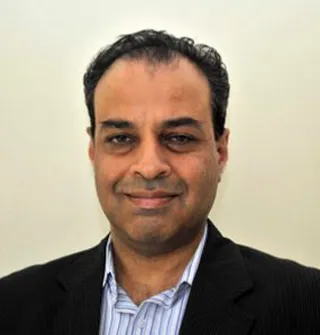-
CENTRES
Progammes & Centres
Location
New Delhi needs the incoming US administration to address the threat of Pakistan based terror in the aftermath of the US election result

This US election has been an acrimonious election, with a deep and often caustic hostility between the two main candidates — Donald Trump and Hillary Clinton. In the welter of claims and counter-claims, public opinion has been bitterly divided — both within and outside the US — over who will make the better President. One place, however, where the event has been treated with relative nonchalance is India. New Delhi is aware that there is bipartisan consensus among Democrats and Republicans on the need for a deeper and more meaningful partnership with India. Regardless of who emerges victorious, Indian analysts feel confident that the new US President will look at India as a close strategic partner. In material terms, this translates into a continuing sale of US military hardware and defence equipment, close coordination in multilateral fora on matters of global governance, co-production and co-development of military technologies, and more maritime collaboration in the Asian littorals (particularly the Western and Eastern Indian Ocean, where there is a significant convergence of security interests). India will also look to US support for entry into Nuclear Suppliers Group (NSG) and other multilateral export control regimes. Washington’s steadfast support in New Delhi’s quest for NSG membership, as also a civil nuclear deal with Japan, makes many Indian observers hopeful that the new leader will be equally committed to advancing Indian interests.
In recent years, the US has emerged as India’s largest military supplier, with defence trade figures having surpassed US$ 14 billion in 2015. But New Delhi needs close cooperation from the US to ensure the success of the Modi government’s ‘Make in India’ initiative. The focus of Indian interest would be on the new President’s policies vis-a-vis China. The last thing Indian policymakers want is a revival of the G-2. That flawed notion of a special ‘greatpower’ partnership between China and the US — proposed by the first Obama administration and rejected quickly after — served to alienate many in New Delhi, also raising doubts about US commitment to a stable and peaceful Asia. Now, with growing Chinese assertiveness along the Sino-Indian border in Arunachal Pradesh and Ladakh, there is an even greater imperative for the new US Administration to eschew any suggestions for any special arrangement with Beijing which involves turning a blind eye to Chinese aggression in its neighborhood.
Indian analysts will be keen to see how the new president moves to counteract the China-Pakistan axis in South Asia. From submarines and corvettes to fighter aircraft and missile technology, Beijing has become Islamabad’s principal defence supplier, skewing, to a degree, the strategic equilibrium on the subcontinent. Despite Washington’s dependence on Islamabad for political negotiations in Afghanistan, New Delhi will be hoping that the White House’s new occupant will adopt policies that will address India’s strategic concerns, restoring South Asia’s geopolitical balance in India’s favour. Afghanistan might serve as the first indicator of a continuing US commitment to Indian interests. If Washington makes common cause with China and Pakistan, resulting in a future reduction in US military presence, India’s interests might be adversely impacted.
A leader that appreciates Indian stakes in broader South-Asia is likely to best advance the bilateral relationship. In the main, however, New Delhi needs the incoming US administration to address the threat of Pakistan based terror. In the aftermath of the terrorist attack on an Indian army camp in Uri, India has placed terrorism at the top of its political agenda. While Washington has been quick to rap Pakistan for its use of militant-proxies, it has hesitated in going beyond rhetorical admonitions. New Delhi’s expectation is that the new US President will push Islamabad into abandoning its export of terror and work towards sustaining a high level of security and intelligence coordination that could preempt potential terror attempts on Indian soil. The Indian foreign policy establishment is also hopeful that the new leader will move to improve the United States’ relationship with Russia.
This commentary originally appeared in New Indian Express.
The views expressed above belong to the author(s). ORF research and analyses now available on Telegram! Click here to access our curated content — blogs, longforms and interviews.

A former naval officer Abhijit Singh Visiting Fellow at ORF. A maritime professional with specialist and command experience in front-line Indian naval ships he has been ...
Read More +